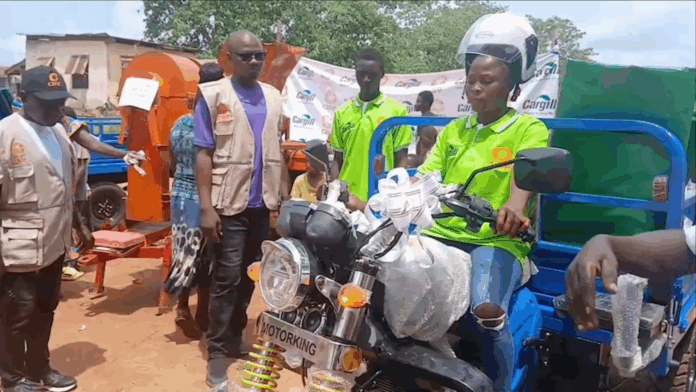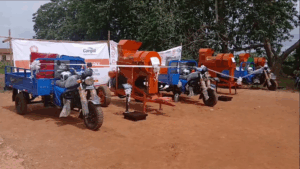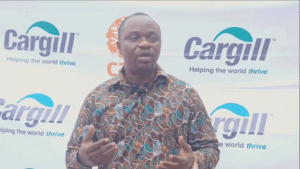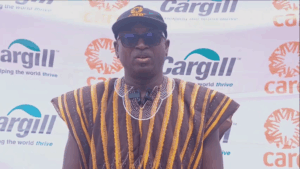In a move to enhance rice production in Ghana, over 6,000 women in five cocoa producing communities in the Ashanti and Central regions have been empowered with logistical support to reduce postharvest losses.
It follows a preliminary assessment which discovered many farmers who grow rice in addition to cocoa, especially females, lacked modern agro-processing tools to cultivate and harvest rice.
Ghana anticipated rice self-sufficiency in 2024, but this failed to materialize as the country currently has local production levels below market demand.
The inadequate local production is adversely impacting rice sale and export for revenue generation.
Aside from the environmental impacts on production, logistical challenges continue to fraught the rice value chain.
CARE Ghana, in partnership with Cargill, provided over 6,000 women in cocoa producing communities with agro-processing equipment.
The participating communities included Kuffour Camp, KD Sreso, Pasoro, Ayigbo, and Tonkoase.
The women received three rice threshers, ten tarpaulins, five weighing scales, and five motorized tricycles.
Samuel Apana, the Country Operations and Sustainability Manager – Cargill Ghana, explains the impacts of the tools on rice processing in the communities.
“This will help the women produce in large quantities and efficiently to be able to earn them decent income to support their households,” he noted.
These tools are expected to enhance post-harvest handling and processing, reduce losses, and support income diversification of farmers in these communities.
The presentation ceremonies assembled representatives from the Ministry of Food and Agriculture, the Ministry of Gender, Children and Social Protection, local government authorities, traditional leaders, and community members.
Ashanti Regional Director of Food and Agriculture, Godfrey Appiah Acheampong, is positive of the production value and economic prospects of the tools to the women.
“The lack of agro-processing equipment is a bane to rice, oil palm and cassava production in Ghana. These tools will enhance efficiency and open access to better markets,” he said.
Launched in 20216, the ‘Promoting a Sustainable and Food Secured World’ (PROSPER) project seeks to strengthen inclusive governance, enhance women’s participation in decision making processes, improve food and nutrition security and improve access to education and child protection.
The project has since its establishment been run in two phases with the current phase being PROSPER III.
It aims at improving food security and gender equality in cocoa growing communities.
Head of Programs at Care Ghana, Zakaria Yakubu, noted that “the third phase seeks to improve food security and gender equality in cocoa growing communities by targeting 360,200 people in 265 communities across 15 districts in the Western North, Ashanti, and Central Regions,”.
The project has since reached over 77,000 participants, 69% of whom are women.






